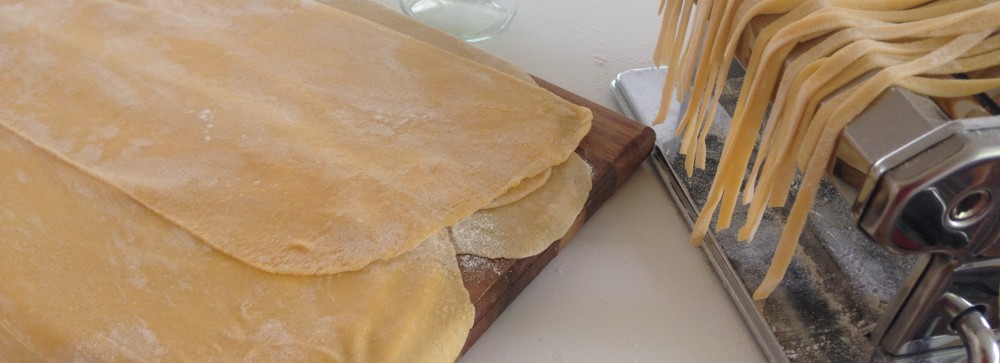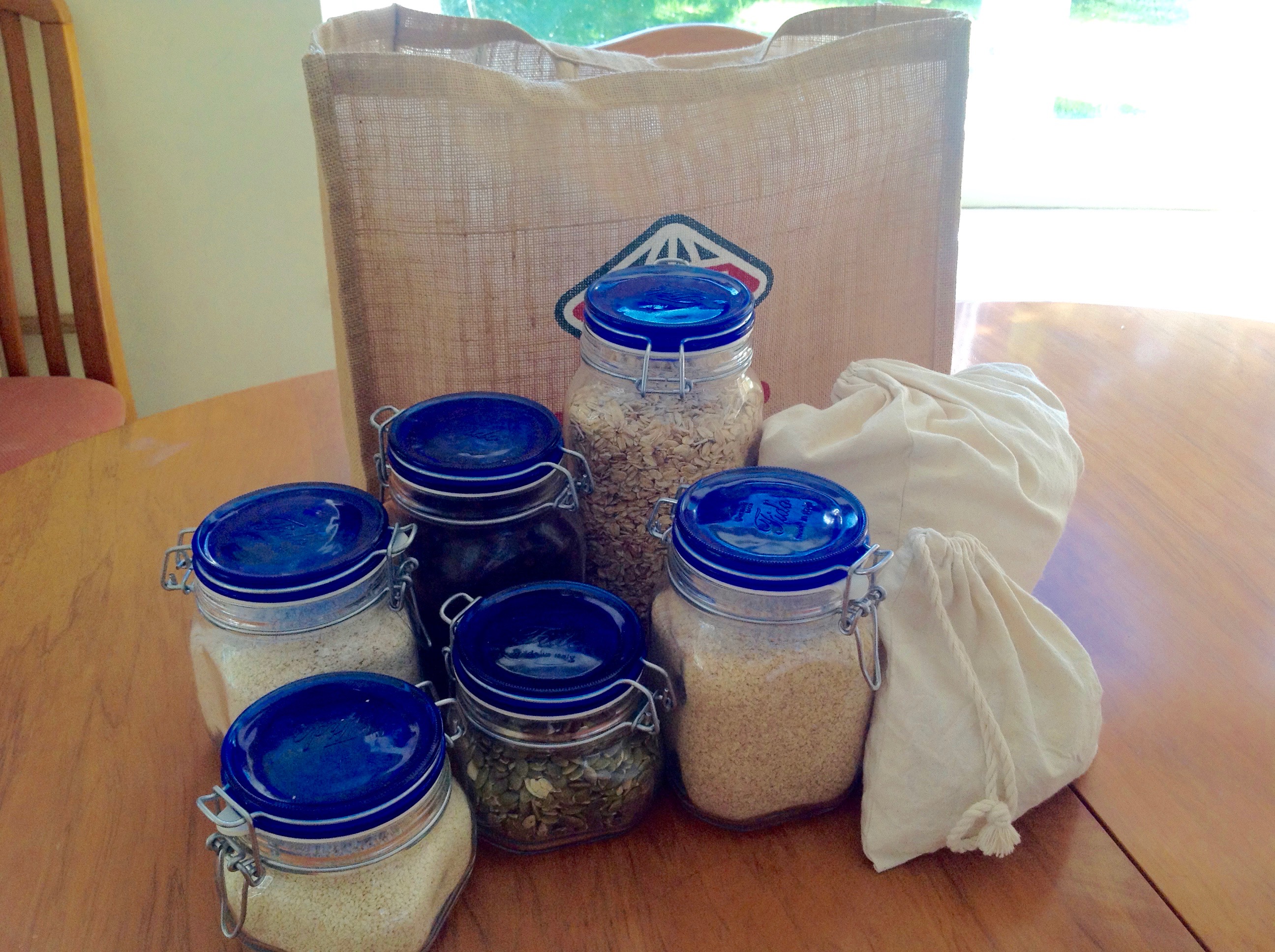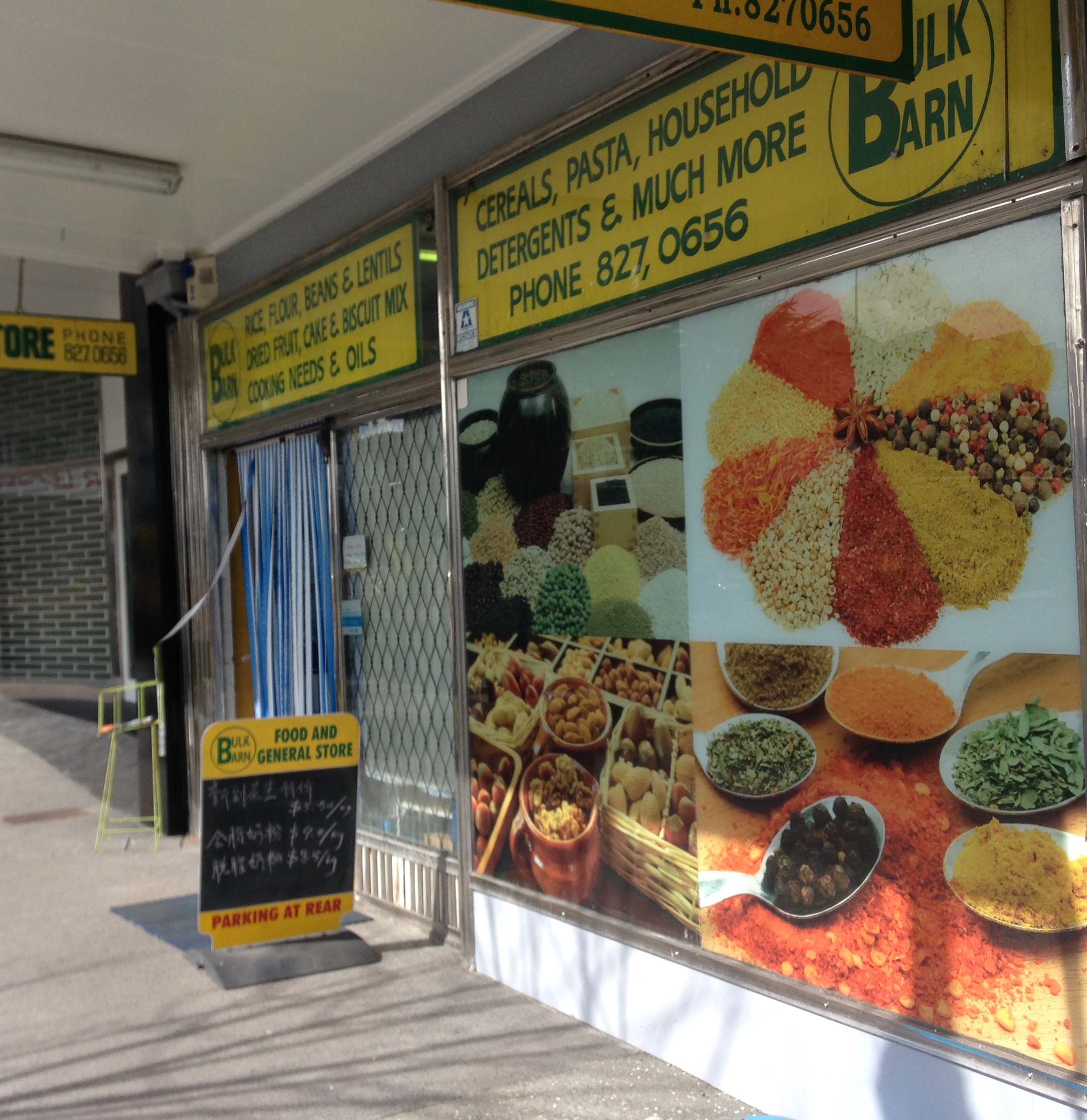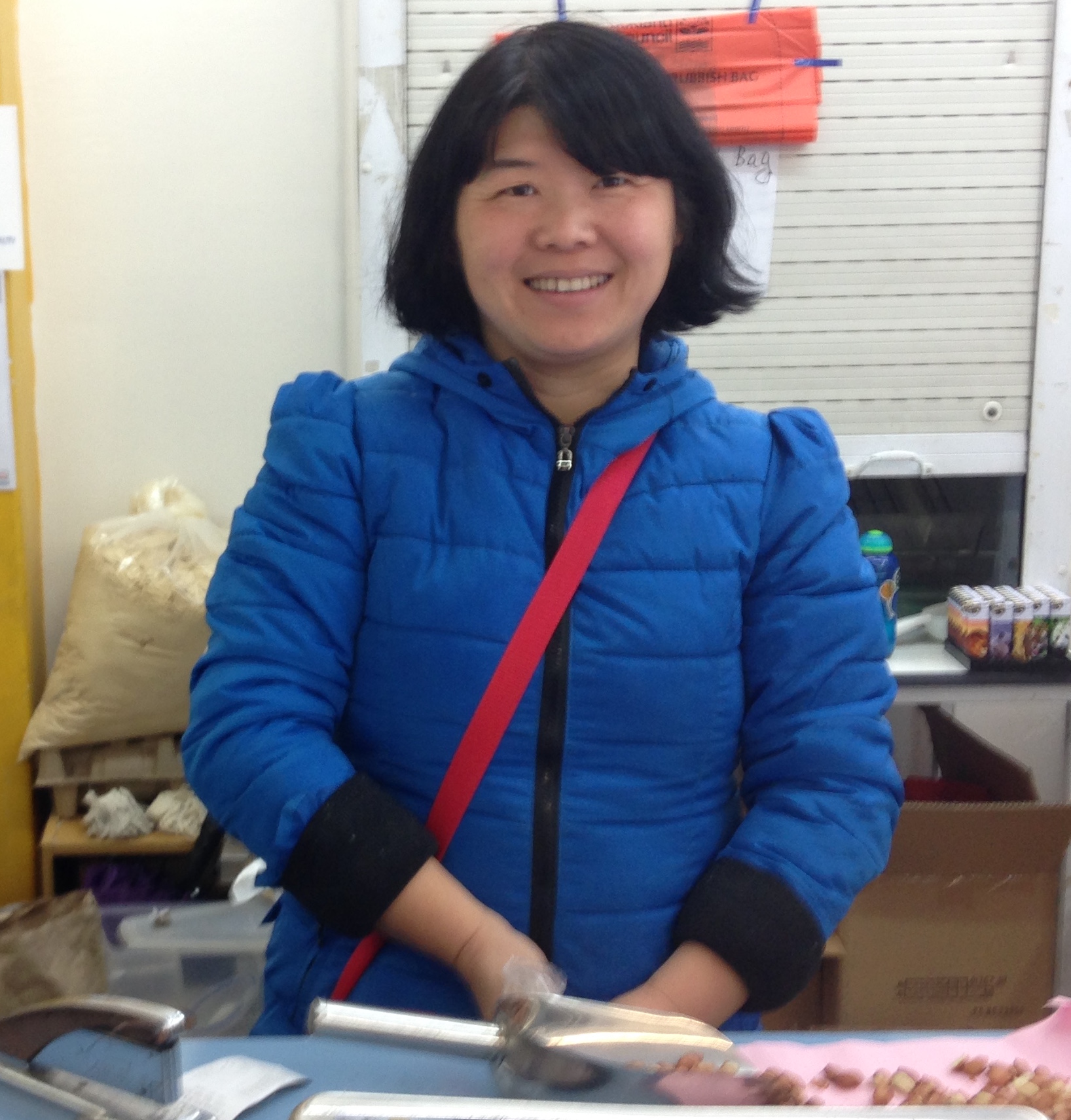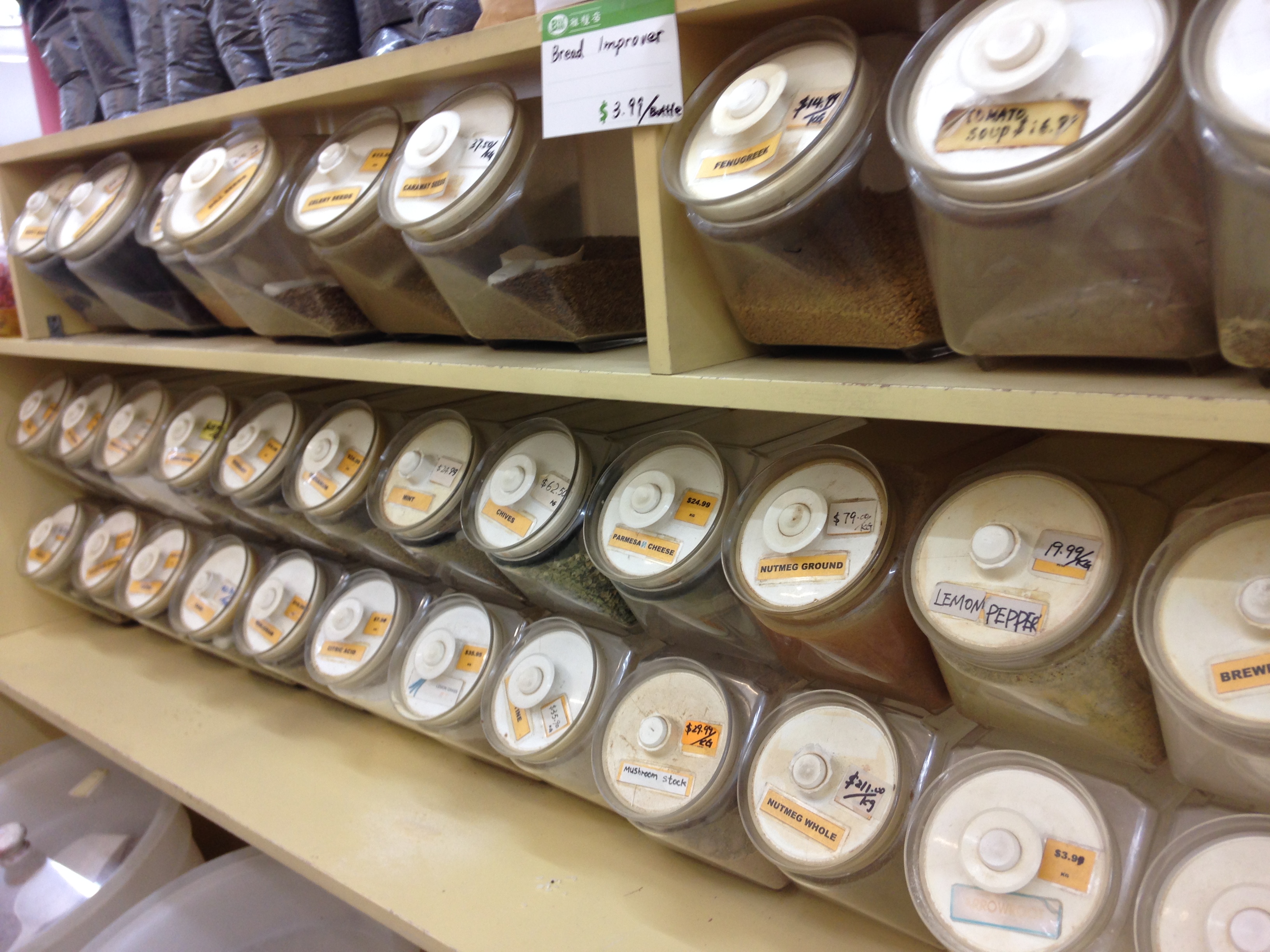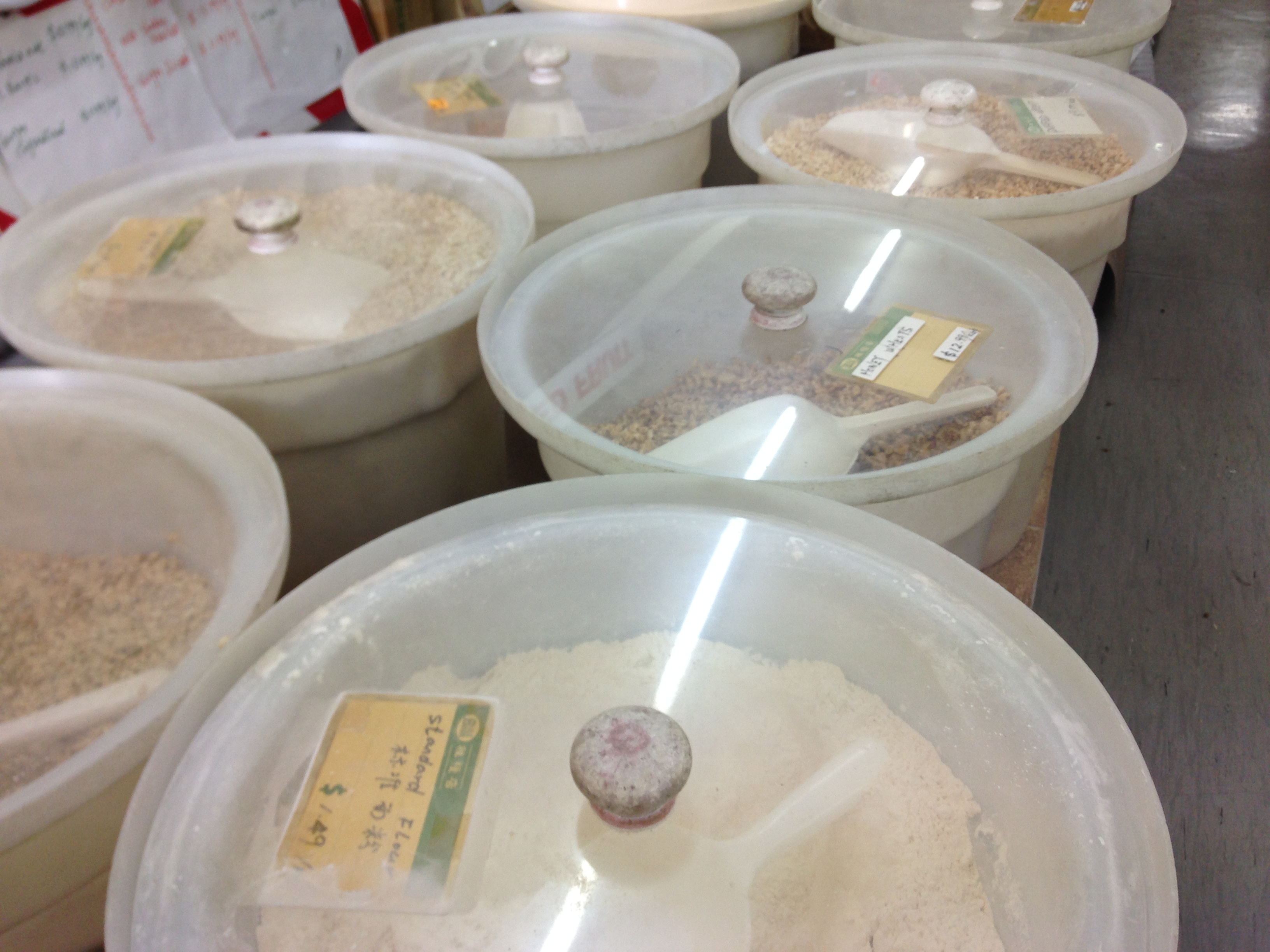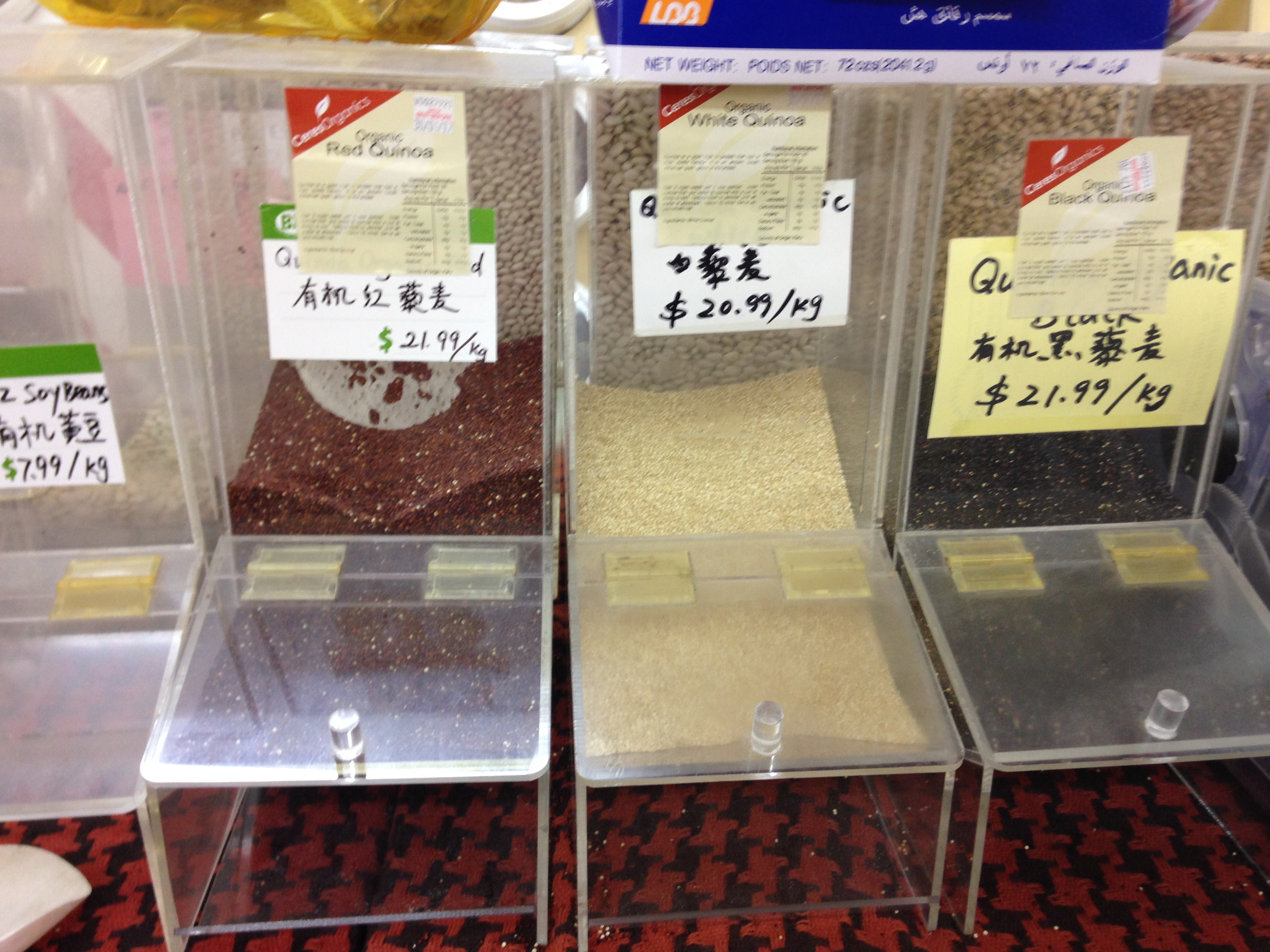Inertia to start: Moderate to high
Difficulty once you get going: Easy
Time: No extra time. You just swap the time emptying plastic bags of rice and pasta into your tupperware once you get home for time working out which containers you need to take to the shop.
Plastic saved per year: Approximately 400 plastic packaging bags each year.
What’s the catch?: You do need to have a good supply of storage containers. Drawstring cotton bags are also useful.
Say ‘buy food in bulk’ and many people think of large sacks of flour, sugar and rice. But while those sort of quantities have an advantage in that a sack of flour requires less packaging than 20 small bags of flour, for me that is not what bulk buying is about.
Rather, buying in bulk allows me do two things;
1) Fill my own containers, and hence avoid packaging; and
2) Buy the amount that I need. No more filling up your Tupperware only to have a little bit left all lost and lonely in the package.
Plus buying food in this way is more economical, plus it means I’m supporting a local person, which I believe is all part of being in a community.
Moving to buying dry food in bulk was one of the changes I made quite early on in my journey to less waste and I have to confess to being fortunate on two counts: that I have a bulk foods shop locally, and that the owner is very supportive of my initiative and is happy to tare my containers for me. Not everyone has easy access to a bulk food shop, and if they do the shop may not support customers bringing their own containers. Whether this is for you will therefore depend upon your particular circumstances.
Here’s what a typical haul from the bulk food shop looks like. I take my own glass storage containers, or sometimes my Tupperware. The sorts of products I buy are rolled oats, nuts, seeds and grains to make my own toasted museli, flour, sugar, as well as sundries like baking powder and salt. You can see the drawstring bags on the right? I’m no seamstress, but with with a little effort I was able to run these up on the sewing machine. I made different sizes, small ones for nuts, and large ones that hold two or three kilos of flour.
Here’s my local shop. It’s part of the Bulk Barn franchise in Auckland, this one is in Totara Ave in New Lynn. It is own and operated by Yen, a Chinese expat. The products on offer have everything you’d expect, plus a few extras catering specifically for the Chinese community.
And allow me to introduce the lovely Yen, who owns and runs the shop. While she offers the usual plastic bags for her customers to use, she is wholly supportive of me bringing in my containers each week. She tares them on the scales at the counter, and I go around the shop filling each one. She is always cheerful and it’s so nice to go shopping and to know the person who is serving you, rather than a different checkout operator each week.
Yen’s shop has a good selection of nuts and dried fruits. Almonds, raisins, sesame, pumpkin, and sunflower seeds are regular purchases as they are museli ingredients. I also buy peanuts to make peanut butter, and I often get cashews, the kids eat them in their lunches and for snacks.
The shop also has a good range of herbs and spices…
and some large bins for the real bulk items such as flour, rolled oats, and cornflakes.
And I’m learning to cook the odd quinoa dish.
All in all, I enjoy buying as many dry grocery goods as I can in this way. I save a ton of packaging, I save money, and the shopping experience is so much more personal and genuine.
I hope you have a bulk foods shop near you…if you do, I encourage you to give it a go.
R
